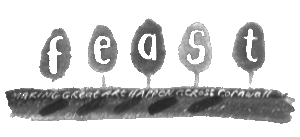The Maker The Charles Causley Literary Blog
Welcome Hauntings – Cornish Hauntings
Welcome Hauntings submissions!
'The Widow of Bodmin Moor'
by Michelle Fisher
Beneath the moan of Bodmin wind,
Where granite fists break through the heath,
She waits — a shape in raven’s skin,
With secrets stitched between her teeth.
No church bell tolls for Annalise,
Who wed a man with miner’s hands;
He vanished in the moor’s black fleece,
Sunk deep beneath the peat-slick lands.
Each dusk she lit a lantern’s eye,
And called his name into the bog.
By Samhain’s eve, the moor replied —
His voice caught in a curlew’s song.
Now years have curled and crumbled past,
Her cottage long devoured by thorn.
But still her light moves through the grass,
A ghost by mourning gently worn.
No wail, no shriek — just steady flame,
A widow’s hush, a lover’s trace;
She walks not seeking death or fame,
But keeps the moor a sacred place.
If ever lost by Bodmin’s gloom,
And see a lantern softly swung —
Do not run, nor speak of doom;
The moor remembers all its young.

The House on the Edge of the Moor
by Michelle Fisher
Cornwall, October 1846
I, Jonathan Tremayne, solicitor’s clerk and man of modest distinction, record this narrative not out of vanity, but necessity. Should my account be dismissed as fantasy or delusion, I can only offer the chill in my bones and the shiver in my soul as testament to its truth.
It was in the autumn of 1846 that I received an unexpected letter bearing the seal of the Bodmin magistrate. A former client of our office — one Miss Morwenna Penhaligon — had passed without issue, and by a curious twist of lineage, I was found to be the last legitimate heir of a minor estate near the edge of Bodmin Moor, where she had dwelled in isolation for decades. My inheritance was modest: a decaying house of granite called Black Hollow, and whatever possessions remained therein. It was, I was told, to be cleared, sold, or otherwise disposed of.
My instructions were simple: journey to Black Hollow, conduct an inventory of its contents, and report to the magistrate within the week. I had no family in London to detain me, and my employer was generous enough to grant leave. And so, on a drear October morning, I boarded the south-western coach.
The closer I drew to Bodmin Moor, the more the landscape shifted from civil to primeval. The sky, though it had been fair in Exeter, turned a dull slate. The wind was no longer a breeze but a low wailing cry, as if the hills themselves were mourning.
At last, I was let down at a lone post mile from Bodmin town, and walked the rest on foot — following a rough track of slate and earth that wound through bracken, past tumbled stones and the occasional twisted hawthorn. The house came into view near twilight: a hulking black structure, built against a steep hill as though trying to hide from the sky. One window had been broken and boarded. Another stared out like a blind eye.
The caretaker, an elderly man named Truscott, met me at the threshold. He wore a brown coat green with age, and his left hand was gloved though the day was not especially cold.
“You’ll not be here past dark, I hope,” he said by way of greeting.
I informed him I was to stay the night, as my work could not be completed in an hour.
His response was to cross himself and mutter something in Cornish.
“Miss Penhaligon did not abide company,” he finally said. “But she had plenty o’ visitors nonetheless. You’ll see.”
Black Hollow was dark within, its furniture cloaked in dust-sheets and its hearths long cold. The walls were lined with portraits — grim, hollow-eyed Penhaligons with faces like wax death masks. The stair creaked like a voice.
Every door latch groaned.
I lit a candle and began my inspection.
In the drawing room I found nothing remarkable beyond a strange clock that lacked numerals and ticked out of time. Upstairs, in the master chamber, I discovered a narrow bed with a canopy that sagged like rotted sails. A black book lay on the table beside it — a personal journal.
The handwriting within was elegant, if spidery. The entries became increasingly strange as they progressed:
“He walks again. I hear him in the east hall, though the door is locked and the key buried.”
“The light on the moor is back — a cold green fire. It passed my window at midnight. He never forgave me. He never left.”
The final entry was dated All Hallow’s Eve, 1842:
“I have bolted the door. I have sprinkled the salt. But the wind still speaks with his voice.”
I confess I laughed, nervously. The imagination of lonely women can be terribly vivid.
Night came quickly. The house did not warm, even after I built a fire in the old hearth. The wind hissed at the windows like a living thing. I laid out a blanket in the study and tried to read by lamplight, but the candle flickered unnaturally — as though some unseen breath disturbed it.
Then came the sound.
A dragging, deliberate tread along the corridor above.
I froze. No one else should be in the house.
I took the lamp and mounted the stairs slowly. With each step the sound grew fainter, though it did not recede. It was as if the footsteps knew my pace and countered it, always one room ahead.
At the end of the hall was the east chamber.
The handle was cold. I opened it.
The room was empty.
But it was not still.
A smell — damp wool, mildew, and something fouler — hung in the air. The window, though latched, was rimed with moisture on the inside. And in the hearth, beneath layers of cold ash, I saw something glinting.
A button.
I picked it up. Brass, tarnished, with the insignia of the Bodmin Militia —disbanded in 1819.
A memory stirred — something from my readings. There had been a soldier, stationed at Bodmin Jail, imprisoned for desertion and treason. Sergeant Ellis Penhaligon — disgraced, sentenced to death, but escaped before his hanging. The tale said he fled to the moor and vanished. Some claimed his sister — Morwenna Penhaligon — had hidden him, concealed him at great risk, but in time he had gone mad, turned violent.
Vanished. Presumed dead. But no body was ever found.
Could he have died here?
A low groan echoed down the corridor — no house-settling creak this, but a distinct utterance. A sound of grief.
I backed from the room, heart hammering.
The groan came again — closer. Nearer. From the stairs.
Then I saw him.
A shape, half-shadow, hunched and tall. The outline of a man, but wrong in proportion — as if stretched by long suffering. The face was hidden beneath a ragged cowl. One hand was gloved. The other… skeletal.
He raised his head.
His eyes were twin embers. Not metaphor — not madness. Actual fire. Green. Cold. Burning without heat.
The same light the journal described.
I turned and fled, but the stairs twisted beneath me. The house breathed. I swear to God — the walls shifted, narrowed. The doors wept with condensation. The air stank of death and the moor.
I fell. The candle snuffed. Blackness.
I awoke near dawn. Curled on the threshold. Alone.
The east chamber was sealed — its door nailed with boards that had not been there the night before.
No sign remained of the figure. Nor the button.
When I descended, Truscott was waiting outside, pale as chalk.
“You saw him, didn’t you?”
I nodded dumbly.
He sighed and handed me a folded scrap of parchment. “This was never meant for London men.”
I opened it. A confession — written by Morwenna herself. She had harboured her brother Ellis after his escape. But he was changed. A thing of violence and hunger. She kept him in the east chamber. Fed him. Hid him. Prayed for him.
But on All Hallow’s Eve, when the moor spirits walked, she had locked the door and left him to starve. Out of mercy, or fear.
And now, each year, as October wanes, he walks again — seeking warmth, seeking blood, seeking kin.
I did not stay to complete the inventory.
Black Hollow was surrendered to the county. Its stone carted away. But those who pass the hill in autumn say that a light still flickers behind bramble and ivy.
And the moor wind — if you listen — bears a name.
Mine.
Writer Bio
Michelle Fisher is a teacher and writer based in Oxfordshire. With a passion for history, folklore, and the paranormal, she created the Haunted History Chronicles Podcast to share these interests and connect with like-minded voices, themes which often inspire her writing. You can find her work on her website https://www.podpage.com/haunted-history-chronicles/, on Facebook @HauntedHistoryChronicles, on X @HauntedHistory4, on Instagram @haunted_history_chronicles and on Bluesky @ hauntedhistorypod.bsky.social.












